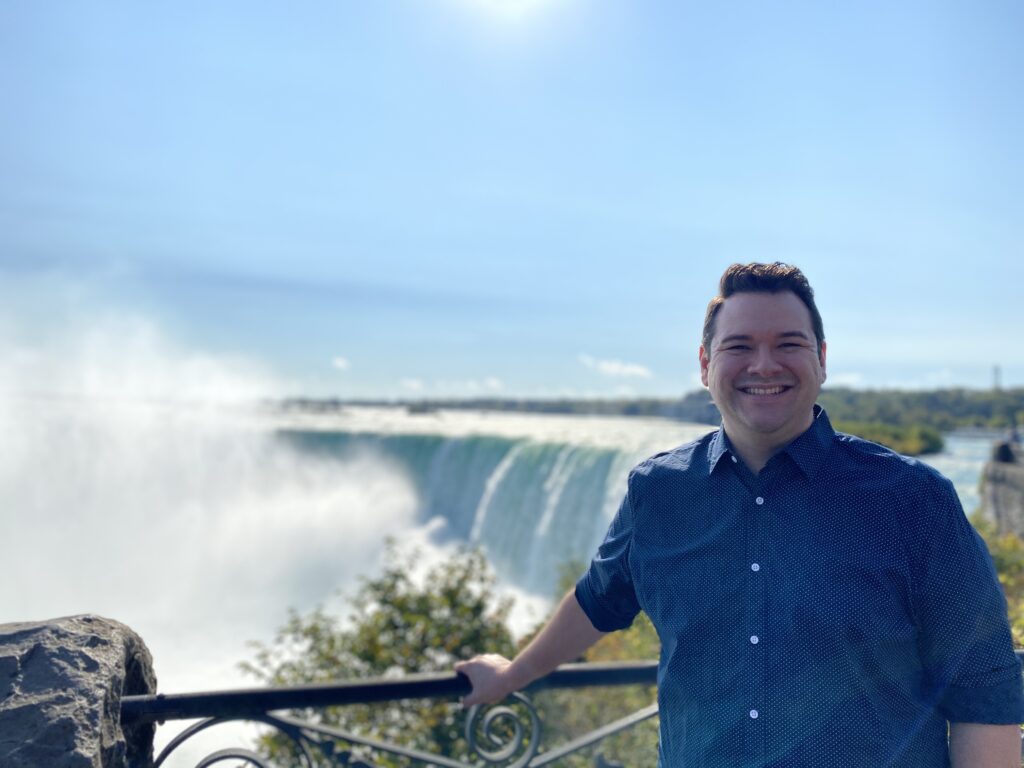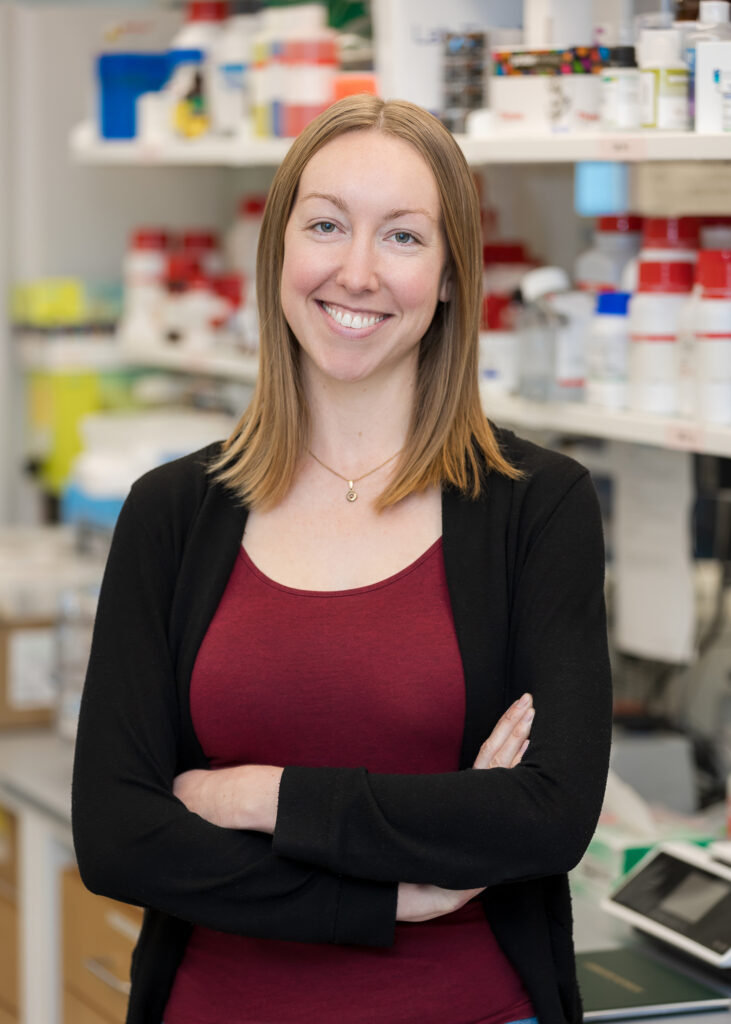Alumni of the UBC Graduate Program in Neuroscience (GPN) embark on diverse career paths, spanning academia, clinical practice, industry, and beyond. We’ve connected with two of our esteemed Neuroscience program graduates who continued in academia to learn about their current career destinations and how their experiences in the program paved the way for their success.
Dr. Parker Holman, GPN PhD Graduate 2019
Senior Lab Demonstrator – Brock University
What is your current job?
I am an Anatomy Senior Laboratory Demonstrator for the Faculty of Health Sciences, responsible for the instruction and supervision of undergraduate students in the Musculoskeletal Anatomy laboratory courses at Brock University.
What is a typical day like for you?
A typical day involves setting up anatomy laboratories for students – by organizing cadaveric specimens in the wet lab or curating models and 3D visualizations in the dry lab – and then working with Teaching Assistants and volunteer peer educators to teach undergraduates about the musculoskeletal system, including key structures and their functions. It’s a lot of fun interacting with so many different learners and educators and I find that I learn something new every day!
Why did you choose Neuroscience?
I have always been interested in how the brain works to produce behaviour, especially in the context of development. As a cross-disciplinary field, Neuroscience offered what I considered to be the most interesting/exciting methods for beginning to understand how our early life experiences shape brain development and behaviour over the long term.
In what ways has your degree in Neuroscience got you to where you are today?
I met so many fantastic people while in the program and had the opportunity to participate in some really fun and exciting extra-curricular projects during my doctoral work, all of which have helped me during the transition from graduate student to postdoc and now in my current position.
What advice do you have for new graduate students in the program?
It’s easy to spend all of your time on your project – but make sure to get out of the lab and build your network. Your fellow graduate students can be a source of support and inspiration during your degree – but they’ll also be your future colleagues! Make sure to find opportunities to build your skills both in and out of the lab – you never know what experiences may come in handy when you’re out on the job market later!
Anything else you would like to share?
Eat as much sushi as you can while you’re in YVR; London Fog Ice cream from Rain or Shine will change your life.

Dr. Parker Holman
Dr. Elisa York, GPN PhD Graduate 2019
Postdoctoral Fellow – Harvard University
What is your current job?
I’m a postdoctoral fellow, which means I work in a research lab. It is similar to a graduate student position, but with a little more freedom to explore your areas of interest. I mainly design and perform experiments, and interpret and present data.
In what ways has your degree in Neuroscience got you to where you are today?
In terms of career, the experience I gained from my degree and the opportunities to network at conferences have allowed me to continue neuroscience research as a postdoctoral fellow. Beyond that, I have become better at skills like critical thinking, data interpretation, and selecting important information.
Why did you choose Neuroscience?
I found it exciting that the brain controls so much of who we are and what we do, but we seemed to know relatively little about it compared to other systems. Probably the main reason was that all of the research I was learning about sounded like it came from a sci-fi novel.
What did you enjoy most about UBC?
I really enjoyed the group of people that I got to work and study with. Everyone was extremely smart, but at the same time very kind and encouraging. I was able to learn a lot – both through classroom instruction as well as through experimentation or collaboration.
What advice do you have for new graduate students in the program?
Don’t give up on something just because it’s difficult, but also be honest with yourself and know when it’s time to move on. It is important to do work that you enjoy and that gives you a sense of purpose. Look at what job/life you want to aim for and also the path that gets you there – try to find something where you are excited about both.
Anything else you would like to share?
Know how you measure success – it may not be only career advancement, but maybe also having a broad range of interests, or having close relationships with friends and family. Don’t worry about succeeding based on someone else’s metric.

Dr. Elisa York


